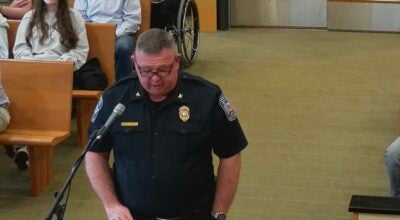Resource manual for human trafficking victims available
Published 6:00 am Friday, January 29, 2021
|
Getting your Trinity Audio player ready...
|
During National Slavery and Human Trafficking Prevention Month, the Virginia Hospital and Healthcare Association (VHHA) is releasing a health care resource manual on identifying and responding to patients who are suspected of being exploited in sex or labor trafficking situations.
The manual, “Human Trafficking: Care and Response,” has been developed by members of the VHHA Human Trafficking Task Force that includes clinicians and other professionals from hospitals across the commonwealth whose work focuses on forensic nursing, human trafficking, sexual assault care, and related disciplines. Representatives from Augusta Health, Bon Secours, Carilion Clinic, HCA Virginia, Inova, Mary Washington Healthcare, Sentara Healthcare, Valley Health, VCU Health, and Virginia Hospital Center served on the Human Trafficking Task Force.
The manual is informed by the real-world experience of clinicians who have worked with patients exploited in human trafficking. Prior to publication, it was also reviewed by a trafficking survivor. It is a guidance document that can be used for staff education and awareness, or even consulted in instances when health care professionals encounter a patient who they suspect is being exploited by a human trafficker. The manual includes information about anti-trafficking laws, explanations about the differences between child and adult trafficking, trafficking facts and myths, distinctions between buyers and perpetrators, tools and resources, clinical indications seen in patients who are being trafficked, potential red flags for health care professionals to be watchful for, and more. Prior to the manual, VHHA previously released an issue of “REVIEW” magazine highlighting human trafficking stories, hospitals’ work on this issue, and efforts by policy makers to target traffickers.
“Human trafficking is a vile and depraved form of exploitation in which people are made to become sex workers or provide labor against their will by force, fraud or coercion,” VHHA President and CEO Sean T. Connaughton said. “Although examples of this type of inhumane exploitation are not always plainly obvious to the general public, human trafficking is a widespread challenge that law enforcement agencies, health care providers, and other stakeholders devote considerable effort and resources to combatting. It is said that human trafficking affects more than 40 million survivors and is a $150 billion global criminal enterprise. Virginia’s elected leaders, law enforcement officials and health care providers play important roles in confronting human trafficking. In Virginia, hospitals with forensic nursing programs work with trafficking survivors, elected officials intent on strengthening relevant laws and police departments and prosecutors who pursue criminal cases against traffickers.”
Human trafficking is one of the world’s fastest growing criminal enterprises, and it can take many forms. It can happen anywhere and can involve people of any age (from young children to older adults), gender, ethnicity or socioeconomic status.
In 2019, the Polaris Project (the operator of the U.S. National Human Trafficking Hotline) worked on 11,500 human trafficking situations reported through its hotline. Those cases involved more than 22,300 survivors, 4,300 traffickers and 1,900 suspicious businesses.
In Virginia, 189 trafficking cases were reported to the hotline in 2019. The trend of human trafficking underreporting suggests these numbers represent just a small fraction of the overall exploitation that is occurring. Human trafficking is a public health concern and an issue that providers should be aware of because many individuals being exploited will visit a health care facility at least once while being trafficked.




